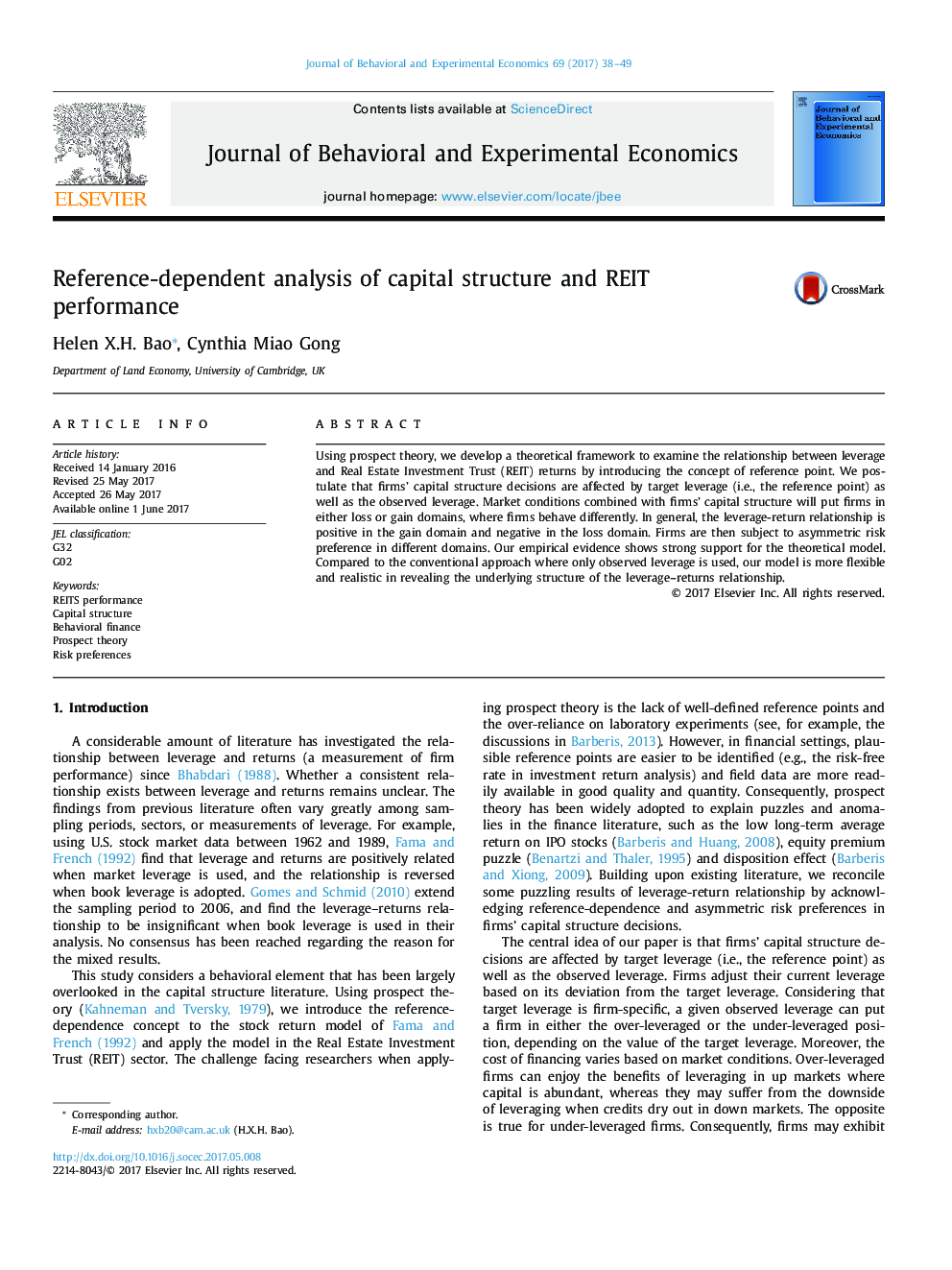| Article ID | Journal | Published Year | Pages | File Type |
|---|---|---|---|---|
| 5034119 | Journal of Behavioral and Experimental Economics | 2017 | 12 Pages |
Abstract
Using prospect theory, we develop a theoretical framework to examine the relationship between leverage and Real Estate Investment Trust (REIT) returns by introducing the concept of reference point. We postulate that firms' capital structure decisions are affected by target leverage (i.e., the reference point) as well as the observed leverage. Market conditions combined with firms' capital structure will put firms in either loss or gain domains, where firms behave differently. In general, the leverage-return relationship is positive in the gain domain and negative in the loss domain. Firms are then subject to asymmetric risk preference in different domains. Our empirical evidence shows strong support for the theoretical model. Compared to the conventional approach where only observed leverage is used, our model is more flexible and realistic in revealing the underlying structure of the leverage-returns relationship.
Related Topics
Social Sciences and Humanities
Economics, Econometrics and Finance
Economics and Econometrics
Authors
Helen X.H. Bao, Cynthia Miao Gong,
